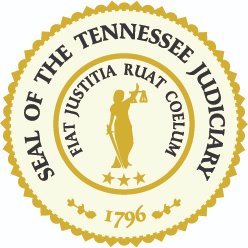Family Immigration Pathways: Uniting Loved Ones in the United States
Welcome to Sharma Law Offices, LLC, where we dedicate ourselves to bringing families together through the U.S. immigration system. Navigating the path to family reunification can seem overwhelming, with various forms and processes to understand. Our goal is to simplify this journey, focusing on key forms that play a vital role in family-based immigration: I-130, I-485, I-129F, and I-751.
Key Forms for Family Immigration
Family unity is a cornerstone of the U.S. immigration policy, and several forms are pivotal in this process. Here, we outline the importance and purpose of each form, guiding you through the steps towards achieving your family reunification goals.
I-130, Petition for Alien Relative
The I-130 form is the first step in the family-based immigration process, filed by U.S. citizens or lawful permanent residents to establish a qualifying relationship with certain family members they wish to bring to the United States. This form is essential for spouses, children, parents, and siblings, paving the way for them to apply for a Green Card.
I-485, Application to Register Permanent Residence or Adjust Status
For family members already in the United States, the I-485 form allows them to apply for lawful permanent residency (a Green Card) without having to leave the country. This adjustment of status process is crucial for individuals seeking to transition from a temporary visa to permanent residency, enabling them to live and work in the U.S. indefinitely.
I-129F, Petition for Alien Fiancé(e)
The I-129F form is specifically designed for U.S. citizens wishing to bring their foreign fiancé(e)s to the United States for marriage. Filing this form is the first step in the process, leading to the issuance of a K-1 nonimmigrant visa that allows the fiancé(e) to enter the U.S. The couple must marry within 90 days of arrival, after which the foreign spouse can apply for permanent residence.
I-751, Petition to Remove Conditions on Residence
For couples where one partner is a U.S. citizen or permanent resident and the other has obtained conditional permanent residency through marriage, the I-751 form is crucial. This petition is filed jointly to remove the conditions on the foreign spouse's residence, typically within the 90 days before their two-year conditional period expires, solidifying their status as a permanent resident.
Partnering with You
At Sharma Law Offices, LLC, we understand the emotional and legal significance of family reunification. Our expertise in family-based immigration law means we're adept at handling complex cases, ensuring that your loved ones can join or remain with you in the United States. Whether you're starting the process with an I-130 petition, adjusting status with an I-485, bringing over a fiancé(e) with an I-129F, or transitioning to permanent residency with an I-751, we're here to support you every step of the way.
If you're navigating the family immigration process and seeking professional guidance, we invite you to schedule a consultation with our experienced team. Together, we can turn the dream of family reunification into a reality.
Meet Attorney Asheesh Sharma – Your Trusted Advisor
With years of experience in immigration law, Sharma Law Offices has a proven track record of successful cases. Our nuanced understanding of U.S. immigration laws ensures that your case is in capable hands.



